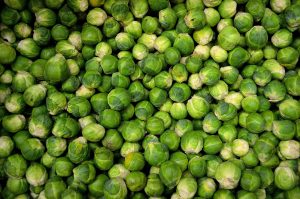brussels sprout
The Brussels sprout is a member of the Gemmifera cultivar group of cabbages Brassica oleracea, grown for its edible buds. The leaf vegetables are typically 1.5–4.0 cm in diameter and resemble miniature cabbages. The Brussels sprout has long been popular in Brussels, Belgium, from which it gained its name. Although native to the Mediterranean region with other cabbage species, Brussels sprouts first appeared in northern Europe during the 5th century, later being cultivated in the 13th century near Brussels, Belgium
- Encyclopedia of Food and Health
- wikipedia
stockphoto 2022 – pixabay.com
